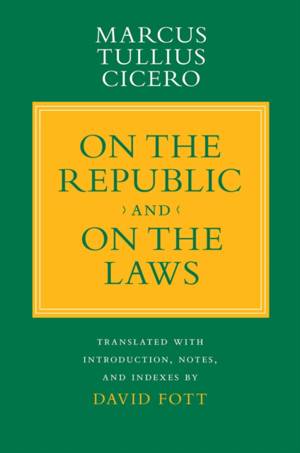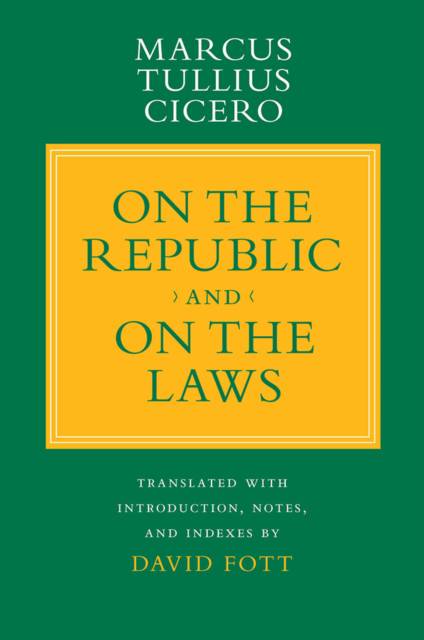
- Retrait gratuit dans votre magasin Club
- 7.000.000 titres dans notre catalogue
- Payer en toute sécurité
- Toujours un magasin près de chez vous
- Retrait gratuit dans votre magasin Club
- 7.000.0000 titres dans notre catalogue
- Payer en toute sécurité
- Toujours un magasin près de chez vous
Description
Cicero's On the Republic and On the Laws are his major works of political philosophy. They offer his fullest treatment of fundamental political questions: Why should educated people have any concern for politics? Is the best form of government simple, or is it a combination of elements from such simple forms as monarchy, aristocracy, and democracy? Can politics be free of injustice? The two works also help us to think about natural law, which many people have considered since ancient times to provide a foundation of unchanging, universal principles of justice.On the Republic features a defense of politics against those who advocated abstinence from public affairs. It defends a mixed constitution, the actual arrangement of offices in the Roman Republic, against simple forms of government. The Republic also supplies material for students of Roman history--as does On the Laws. The Laws, moreover, presents the results of Cicero's reflections as to how the republic needed to change in order not only to survive but also to promote justiceDavid Fott's vigorous yet elegant English translation is faithful to the originals. It is the first to appear since publication of the latest critical edition of the Latin texts. This book contains an introduction that both places Cicero in his historical context and explicates the timeless philosophical issues that he treats. The volume also provides a chronology of Cicero's life, outlines of the two works, and indexes of personal names and important terms.
Spécifications
Parties prenantes
- Auteur(s) :
- Traducteur(s):
- Editeur:
Contenu
- Nombre de pages :
- 240
- Langue:
- Anglais
- Collection :
Caractéristiques
- EAN:
- 9780801452239
- Date de parution :
- 15-01-14
- Format:
- Livre relié
- Format numérique:
- Genaaid
- Dimensions :
- 155 mm x 229 mm
- Poids :
- 430 g

Les avis
Nous publions uniquement les avis qui respectent les conditions requises. Consultez nos conditions pour les avis.






